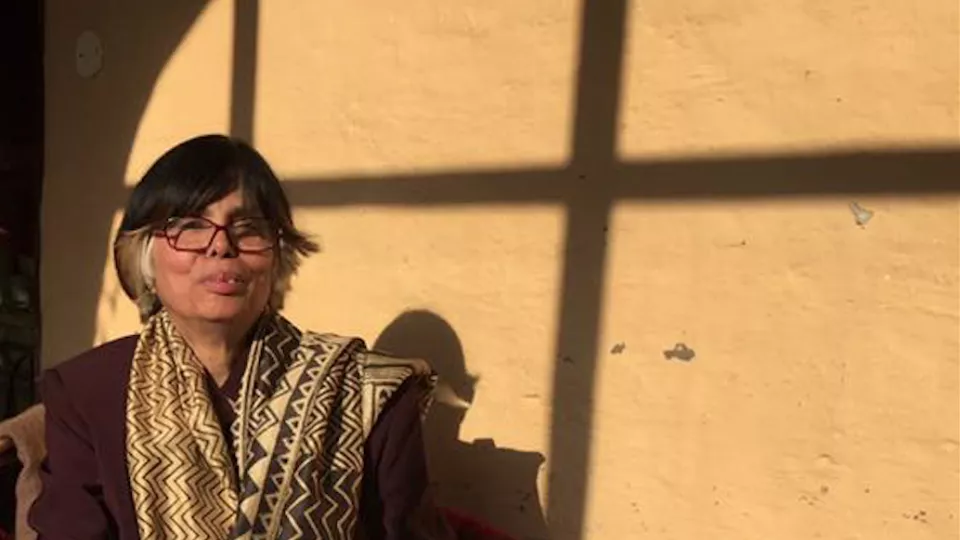Meera Chakravorty gave two interesting lectures. The main function was at Sigtunastiftelsen (the Sigtuna Foundation) in the small town of Sigtuna, outside Stockholm. Here, she was invited to to speak on ”Rabindranath Tagore: The Poet of Joy” in connection with a launch of a book written on this theme by Prof. Chakravarty and a Swedish poet/artist friend, Ms. Elsa Maria Lindqvist. The book is entitled 'The Remnant Glory', and has been published by the reputed and prestigious Kolkata publishing house Writers Workshop. During the Sigtuna presentation, Hannah Lindqvist had put some of the poems to music and enthralled the audience with her melodious voice.
Prior to this event, on Monday 4 April, Meera Chakravorty was invited to hold a seminar at Lund University. The seminar was organised by Anton Geels, Professor Emeritus in History and Psychology of Religion, and it was held for the students at the Centre for Theology and Religious Studies (CTR). The theme for the lecture was ”Ecology from an Indian (Indigenous) Perspective”, and focused on how environment is used as a commodity and how the vested interest is making a profit from this, thereby damaging the ecological balance. She said that for anyone interested in the future impact on environment, it is important not realise that a change of perspective can transform our understanding of the relation between people and environment. Hence, the principal aim, is to help people better comprehend this perspective and to apply it to their work situation.
The discussion that followed revealed how students and faculty members from different disciplines give environment a centre stage in Sweden. Some of the students informed Prof. Chakravorty how many young people are taking to second hand clothing in an attempt to save environment. Details, such as these provide much appreciation, and will encourage youth in other countries for innovative measures that can be easily adopted. At the end of the discussion, the general feeling was that it had resulted in a fascinating dialogue with different cultures and traditions pursuing the historical developments of some of the concepts from the indigenous sources are to be disseminated widely, while finding ways to delink the environment from the market economy.
